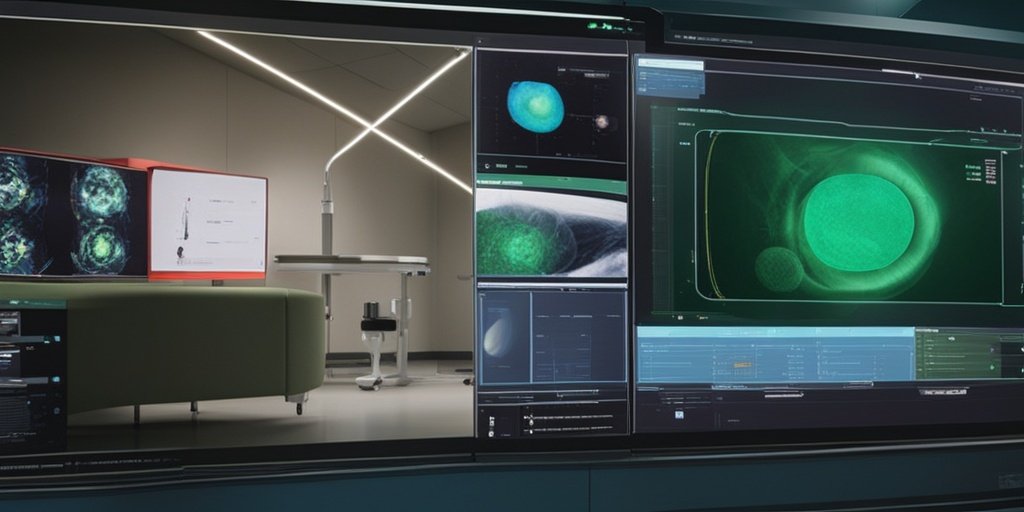⚡ Quick Summary
This study developed an AI model utilizing convolutional neural networks for the automated recognition of small bowel lesions in capsule endoscopy, achieving a remarkable AUC of 0.9897 and a sensitivity of 87.17%. The application outperformed endoscopists in accuracy and processing speed, highlighting its potential in clinical settings.
🔍 Key Details
- 📊 Dataset: 34,303 images from three capsule endoscopy datasets
- 🧩 Categories: 12 types of small bowel lesions
- ⚙️ Technology: MobileNetv3-large model
- 🏆 Performance: Sensitivity 87.17%, Specificity 98.77%, AUC 0.9897
- ⏱️ Processing Speed: 75.04 frames per second
🔑 Key Takeaways
- 🤖 AI model significantly reduces the workload for physicians in interpreting capsule endoscopy images.
- 💡 Convolutional neural networks were effectively utilized for automated lesion recognition.
- 🏥 High sensitivity of 87.17% ensures fewer missed diagnoses.
- 🌟 The application surpassed endoscopists in accuracy and processing speed.
- 📈 Future studies will focus on validating the AI system for video evaluations.
- 🔍 Model interpretability was enhanced using Grad-CAM and SHAP techniques.
- 🌍 Clinical integration of AI in gastroenterology could transform patient care.

📚 Background
Capsule endoscopy (CE) is a vital diagnostic tool for small bowel diseases, yet the sheer volume of images generated can overwhelm physicians, increasing the risk of missed diagnoses. The integration of artificial intelligence into this process promises to alleviate some of this burden, enhancing diagnostic accuracy and efficiency.
🗒️ Study
The study involved training, validating, and testing an AI model using three distinct datasets of small bowel capsule endoscopy images. The researchers aimed to develop a system capable of automatically recognizing various lesions, thereby supporting physicians in their diagnostic efforts.
📈 Results
The MobileNetv3-large model emerged as the best performer, achieving a weighted average sensitivity of 87.17% and a specificity of 98.77%. The model’s AUC of 0.9897 indicates excellent discriminative ability. The application developed from this model processed images at a speed of 75.04 frames per second, demonstrating its efficiency compared to human endoscopists.
🌍 Impact and Implications
The implications of this study are profound. By integrating AI into capsule endoscopy, we can significantly enhance the diagnostic process for small bowel diseases. This technology not only improves accuracy but also expedites the interpretation of images, potentially leading to quicker patient management and better outcomes. The future of gastroenterology may very well hinge on such innovative applications of AI.
🔮 Conclusion
This research highlights the transformative potential of AI in the field of gastroenterology. The developed model and application can assist physicians in accurately identifying small bowel lesions, thereby improving diagnostic efficiency. As we look ahead, further validation and integration of this technology into clinical practice will be essential for realizing its full potential.
💬 Your comments
What are your thoughts on the integration of AI in capsule endoscopy? We invite you to share your insights and engage in a discussion! 💬 Leave your comments below or connect with us on social media:
Establishing an AI model and application for automated capsule endoscopy recognition based on convolutional neural networks (with video).
Abstract
BACKGROUND: Although capsule endoscopy (CE) is a crucial tool for diagnosing small bowel diseases, the need to process a vast number of images imposes a significant workload on physicians, leading to a high risk of missed diagnoses. This study aims to develop an artificial intelligence (AI) model and application based on convolutional neural networks that can automatically recognize various lesions in small bowel capsule endoscopy.
METHODS: Three small bowel capsule endoscopy datasets were used for AI model training, validation, and testing, encompassing 12 categories of images. The model’s performance was evaluated using metrics such as AUC, sensitivity, specificity, precision, accuracy, and F1 score to select the best model. A human-machine comparison experiment was conducted using the best model and endoscopists with varying levels of experience. Model interpretability was analyzed using Grad-CAM and SHAP techniques. Finally, a clinical application was developed based on the best model using PyQt5 technology.
RESULTS: A total of 34,303 images were included in this study. The best model, MobileNetv3-large, achieved a weighted average sensitivity of 87.17%, specificity of 98.77%, and an AUC of 0.9897 across all categories. The application developed based on this model performed exceptionally well in comparison with endoscopists, achieving an accuracy of 87.17% and a processing speed of 75.04 frames per second, surpassing endoscopists of varying experience levels.
CONCLUSION: The AI model and application developed based on convolutional neural networks can quickly and accurately identify 12 types of small bowel lesions. With its high sensitivity, this system can effectively assist physicians in interpreting small bowel capsule endoscopy images.Future studies will validate the AI system for video evaluations and real-world clinical integration.
Author: [‘Chen J’, ‘Xia K’, ‘Zhang Z’, ‘Ding Y’, ‘Wang G’, ‘Xu X’]
Journal: BMC Gastroenterol
Citation: Chen J, et al. Establishing an AI model and application for automated capsule endoscopy recognition based on convolutional neural networks (with video). Establishing an AI model and application for automated capsule endoscopy recognition based on convolutional neural networks (with video). 2024; 24:394. doi: 10.1186/s12876-024-03482-7